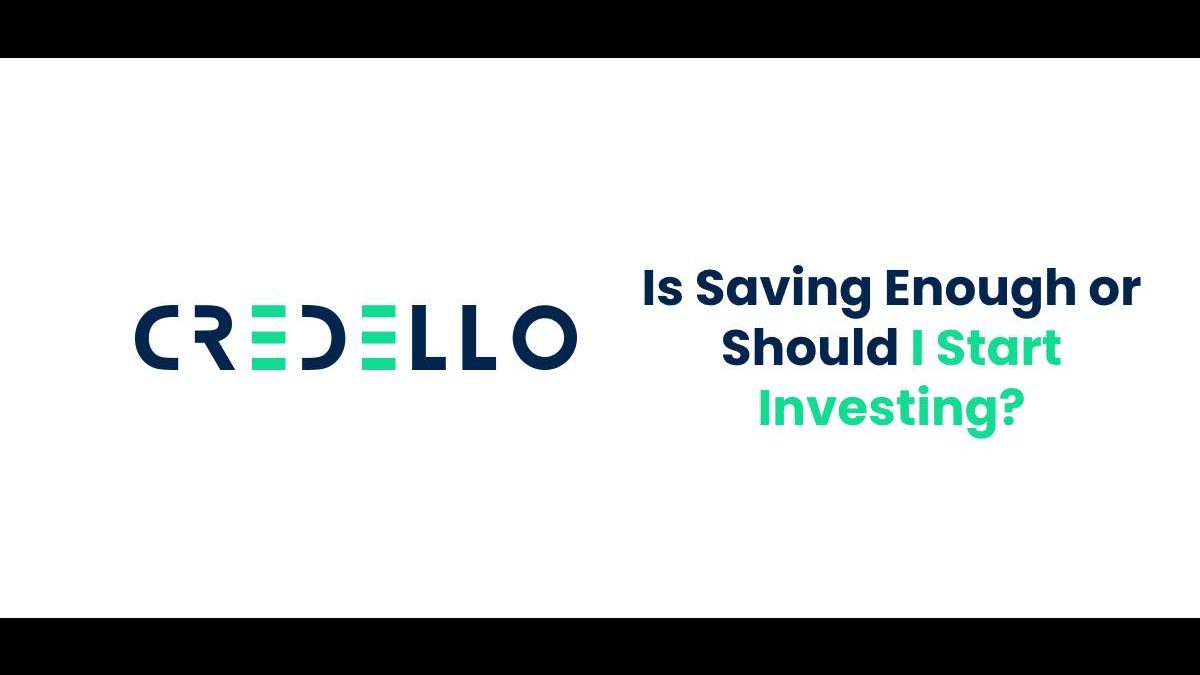Is Saving Enough or Should I Start Investing
Financial advisors generally tell their clients to save first, then start investing. This strategy helps mitigate risk, as savings accounts are considered a “safe” investment. Once you reach your savings goals, you can afford to start buying equities and exchange-traded funds (ETFs), which are more volatile.
How much do you need to save before you can start investing? The answer will be different for everyone. If you understand debt you know that savings goals need to be tempered while paying down personal debt. If you want to make a major purchase, like a home or new car, you’ll probably want to ramp up your savings plan to afford the down payment.
Savings accounts are not wealth builders
If your goal is long-term financial security, saving isn’t enough. Savings accounts have their place in a holistic financial plan, but it should be a small place. Interest rates on savings are lower than the Federal Reserve target for annual inflation, which is 2%, meaning that the value of every dollar you put into a standard savings account decreases over time.
Think of savings as a placeholder. That money is a liquid asset that can be accessed any time you need it. That’s why most consumers describe their savings account as an “emergency fund.” Stocks and bonds need to be sold before you can use those funds. Savings can simply be withdrawn and spent. That’s an advantage in certain situations.
Online savings accounts frequently offer higher interest rates. But be careful. Traditional bank accounts are protected by the Federal Deposit Insurance Corporation (FDIC). Online banks are sometimes outside the United States, in which case your deposits are not protected. Using them for wealth building is a risk. You’re better off with the lower interest rate.
When and how to start investing
Saving and investing are not successive tasks. There’s no need to “finish” one before you start the other. The two should run in sync with one another. Financial advisors recommend prioritizing saving first because they require a minimum deposit to manage your investments. Fortunately, hiring an advisor is not the only way for you to start an investment portfolio.
The advent of mobile app trading platforms, like Robinhood and Acorns, have simplified the investment process for everyday consumers. With no minimums and no transaction fees, they make it possible to buy equities, bond funds, and ETFs without the help of a financial advisor, changing the way consumers view saving and investing.
With these new mobile apps, you can start investing right away. For best results, put 25% of your available extra money into savings 50% into conservative stocks and mutual funds and the remaining 25% into more volatile investment vehicles like cryptocurrencies. The stock market has historically gained 10% per year for decades, so it’s safer than you might think. Ignore short-term losses and think big picture. You should make money over time.
Education is the key to successful investing
You don’t need to become an expert to start investing, unless of course you want to. There are plenty of books about investing that can get you up to speed. You also have access to this wonderful invention called the internet, which contains a wealth of knowledge on the subject.
Learn how the market works. Don’t get caught up by stock promoters who “hype” certain investments. There are no “get rich quick” fixes in the world of finance. Being successful takes hard work, careful analysis, and a little bit of luck now and then. Continue to build your savings account, but don’t wait to start investing. Starting early can lead to a healthy financial situation in retirement.
Kevin Flynn
Kevin is a former fintech coach and financial services professional. When not on the golf course, he can be found traveling with his wife or spending time with their eight wonderful grandchildren and two cats.

